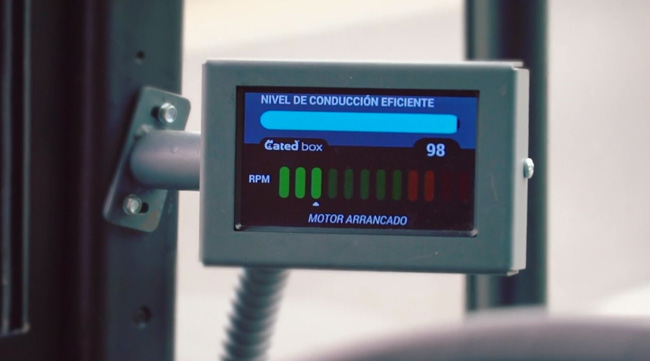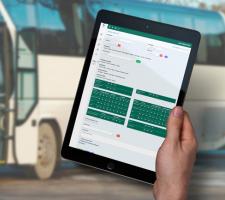
Public transit is at the heart of future urban mobility. The focus here is, quite rightly, on improving the experience for riders – but there is someone else in the chain who might be overlooked, despite being vital to the success of any operation: the driver.
Bus drivers, for example, have a difficult job, combating congestion and the whims of other drivers – all while being responsible for the health and wellbeing of passengers who rely on a service to be prompt and safe.
To address this issue, Spanish firm ADN Mobile Solutions has developed Bled, a Software as a Service solution which is combined with training to help bus drivers improve their driving efficiency. The interesting thing is that Seville public bus operator
Happy workers may well have a positive effect on the bottom line – and the reduction of public transit emissions through better driving will benefit everyone. Perhaps most eye-catchingly, ADN insists that companies can reduce fuel consumption by as much as 10%.
“We’re trying to improve driving in professional fleets,” says Fernando Aparicio, the company’s business development director. “Traditional training happens once and then the driver forgets.” Instead, ADN is looking for drivers to improve “in a real-life basis…looking at drivers from the human point of view.”
Its open-source software can be integrated with existing third-party systems such as automatic vehicle monitoring, and incorporated into a firm’s own human resources (HR) operation. ADN CEO Abel Rionda continues: “The solution is totally us, we have full control and we can adapt to market needs. In public transport we see a market opportunity because this market hasn’t updated these kind of solutions. Ours can be integrated to provide a continuous approach.”
The solution is based around tech – both in terms of on-board units in the vehicles themselves (which can make real-time suggestions to drivers), and a central control system which collates and analyses driving and vehicle information, then feeds it back to customers in the form of practical insight (using different key performance indicators (KPIs). “It is important that this method is seamlessly integrated into the operator’s HR procedure,” says Rionda.
At the start of the process, bus drivers perform their routes as they have been doing. On-board units then present information which shows how they might improve. “This is always in comparison with driving in similar vehicles, in similar conditions,” explains Rionda. Elements such as idle time and RPM are examined, for instance, but in relation to things like weather, traffic jams and lane layout. “The idea is not to distract the driver,” he goes on. “We’re taking the context of driving into account. Drivers must believe in the information provided. Supported by this recommendation, they understand they can perform in a more comfortable way. This is a tool for improving learning – not for punishment.” Gamification tools include a ‘green coin’ reward system. “We evaluate the whole driver – we know which ones are maintaining better results in similar conditions,” say Rionda. “We calculate savings in emissions such as CO2.”
Fleet customers include ALSA National Express Spain and Morocco. With backing from the European Union, ADN is looking to develop the product in France and Italy, as well as targeting Latin America.












